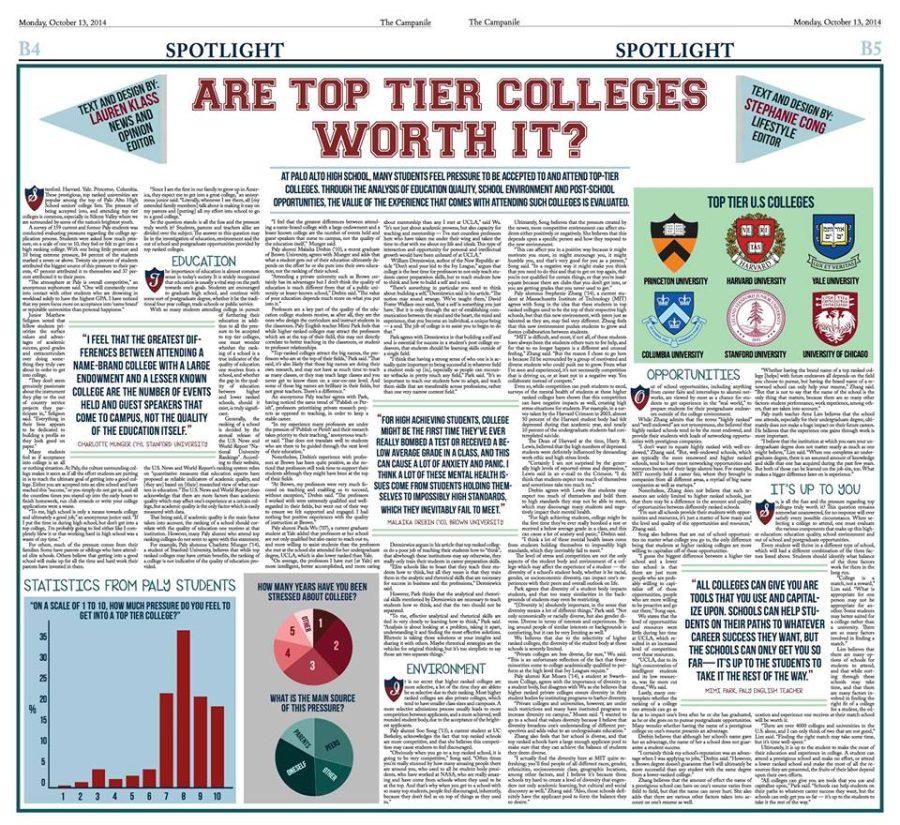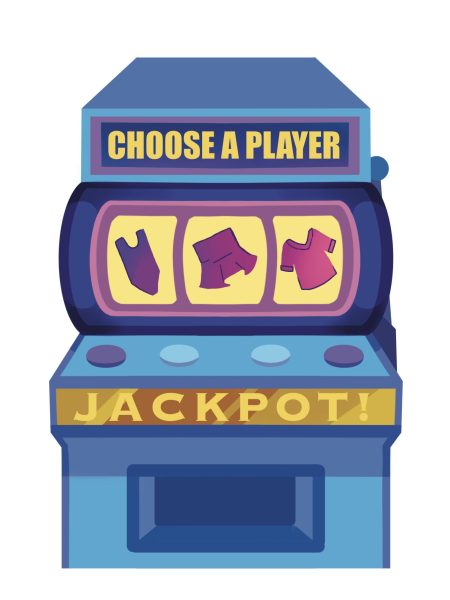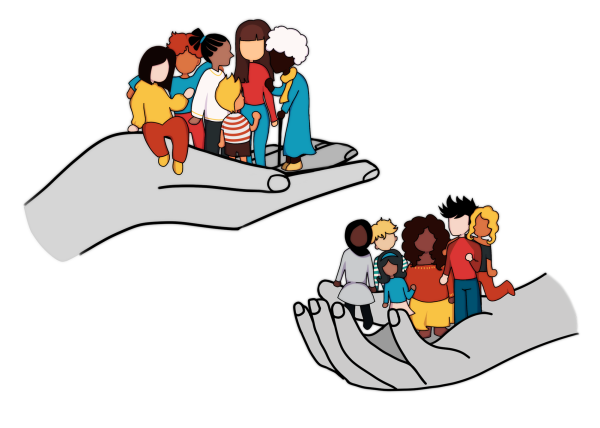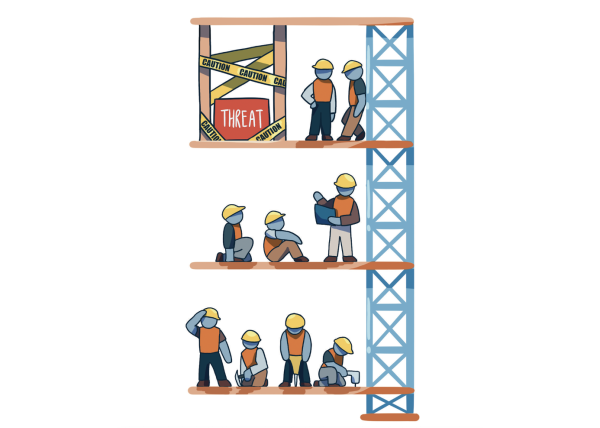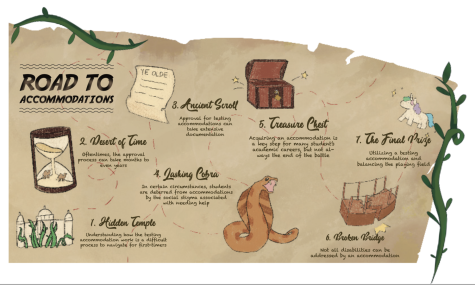Are Top Tier Colleges Worth It?
At Palo Alto High School, many students feel pressure to be accepted to and attend top-tier college. Through the analysis of education quality, school environment and post-school opportunities, the value of the experience that comes with attending such colleges is evaluated.
Stanford. Harvard. Yale. Princeton. Columbia. These prestigious, top ranked universities are popular among the top of Palo Alto High School seniors’ college lists. The pressure of being accepted into, and attending top tier colleges is common, especially in Silicon Valley where we are surrounded by some of the nation’s brightest youth.
A survey of 159 current and former Paly students was conducted evaluating pressures regarding the college application process. Students were asked how much pressure, on a scale of one to 10, they feel or felt to get into a high ranking college. With one being little pressure and 10 being extreme pressure, 84 percent of the students marked a seven or above. Twenty six percent of students attributed the biggest source of this pressure to their parents, 47 percent attributed it to themselves and 37 percent attributed it to their peers.
“The atmosphere at Paly is overall competitive,” an anonymous sophomore said. “One will constantly come into contact with other students who are drowning in workload solely to have the highest GPA. I have noticed that my peers focus more on acceptance into ‘name brand’ or reputable universities than personal happiness.”
Junior Matthew Seligson noted that fellow students prioritize the surface values and advantages of academic success, good grades and extracurriculars over doing something they truly care about in order to get into college.
“They don’t seem genuinely passionate about the instrument they play or the out of country service projects they participate in,” Seligson said. “Everything in their lives appears to be dedicated to building a profile so they look good on paper.”
Many students feel as if acceptance into college is an all or nothing situation. At Paly, the culture surrounding college makes it seem as if all the effort students are putting in is to reach the ultimate goal of getting into a good college. Either you are accepted into an elite school and have reached this “success,” or you simply do not get in, and all the countless times you stayed up into the early hours to finish homework, run club errands or write your college applications were a waste.
“To me, high school is only a means towards college and ultimately a good job,” an anonymous junior said. “If I put the time in during high school, but don’t get into a top college, I’m probably going to feel either like I completely blew it or that working hard in high school was a waste of my time.”
For others, much of the pressure comes from their families. Some have parents or siblings who have attended elite schools. Others believe that getting into a good school will make up for all the time and hard work their parents have invested in them.
“Since I am the first in our family to grow up in America, they expect me to get into a great college,” an anonymous junior said. “Literally, whenever I see them, all [my extended family members] talk about is making it easy on my parents and [putting] all my effort into school to go to a good college.”
So the question stands: is all the fuss and the pressure truly worth it? Students, parents and teachers alike are divided over the subject. The answer to this question may lie in the investigation of education, environment and the out of school and postgraduate opportunities provided by top ranked colleges.
The importance of education is almost common sense in today’s society. It is widely recognized that education is usually a vital step on the path towards one’s goals. Students are encouraged to graduate high school, and continue with some sort of postgraduate degree, whether it be the traditional four year college, trade schools or public service.
With so many students attending college in pursuit of furthering their education in addition to all the pressure to be accepted to top tier colleges, one must wonder whether the ranking of a school is a true indicator of the quality of education one receives from a school, and whether the gap in the quality of education between higher and lower ranked schools, should it exist, is truly significant.
Generally, the ranking of a school is decided by the annual release of the U.S. News and World Report “National University Rankings”. According to their website, the U.S. News and World Report’s ranking system relies on “quantitative measures that education experts have proposed as reliable indicators of academic quality, and [they are] based on [their] researched view of what matters in education.” The U.S. News and World Report does acknowledge that there are more factors than academic quality which may affect one’s experience at a certain college, but academic quality is the only factor which is easily measured with data.
That being said, if academic quality is the main factor taken into account, the ranking of a school should correlate with the quality of education one receives at that institution. However, many Paly alumni who attend top ranking colleges do not seem to agree with this statement.
For example, Paly alumnus Charlotte Munger (‘14), a student of Stanford University, believes that while top ranked colleges may have certain benefits, the ranking of a college is not indicative of the quality of education provided.
“I feel that the greatest differences between attending a name-brand college with a large endowment and a lesser known college are the number of events held and guest speakers that come to campus, not the quality of the education itself,” Munger said.
Paly alumni Malaika Drebin (‘10), a recent graduate of Brown University, agrees with Munger and adds that what a student gets out of their education ultimately depends on the effort he or she puts into their own education, not the ranking of their school.
“Attending a private university such as Brown certainly has its advantages but I don’t think the quality of education is much different from that of a public university or lesser-known school,” Drebin said. “The value of your education depends much more on what you put into it.”
Professors are a key part of the quality of the education college students receive, as after all, they are the ones who design the curriculum and instruct students in the classroom. Paly English teacher Mimi Park feels that while higher ranked colleges may attract the professors which are at the top of their field, this may not directly correlate to better teaching in the classroom, or student to professor relationships.
“Top-ranked colleges attract the big names, the professors who are at the top of their fields,” Park said. “That said, it’s also likely that those big names are doing their own research, and may not have as much time to teach as many classes, or they may teach large classes and you never get to know them on a one-on-one level. And some of those big names are brilliant in their fields, but not great teachers. There’s a difference.”
An anonymous Paly teacher agrees with Park, having noticed the same trend of “Publish or Perish”, professors prioritizing private research projects as opposed to teaching, in order to keep a stable career.
“In my experience many professors are under the pressure of ‘Publish or Perish’ and their research takes priority to their teaching,” anonymous teacher said. “That does not translate well to students who are there to be guided through the next level of their education.”
Nonetheless, Drebin’s experience with professors at Brown has been quite positive, as she noticed that professors still took time to support their students although they might have been at the top of their fields.
“At Brown, my professors were very much focused on teaching and enabling us to succeed, without exception,” Drebin said. “The professors I worked with were extremely qualified and well-regarded in their fields, but went out of their way to ensure we felt supported and engaged. I had nothing but positive experiences with the quality of instruction at Brown.”
Paly alumni Paula Wu (‘07), a current graduate student at Yale added that professors at her school are not only qualified but also easier to reach out to, and more willing to assist students than the professors she met at the school she attended for her undergraduate degree, UCLA, which is also lower ranked than Yale.
“On average, the professors I have met [at Yale] are more intelligent, better accomplished, and more caring about mentorship than any I met at UCLA,” said Wu. “It’s not just about academic prowess, but also capacity for teaching and mentorship — I’ve met countless professors here who have taken me under their wing and taken the time to chat with me about my life and ideals. This type of interaction and opportunity for personal and intellectual growth would have been unheard of at UCLA.”
William Deresiewicz, author of the New Republic article “Don’t send your kid to the Ivy League,” argues that college is the best time for professors to not only teach students career preparation skills, but to teach students how to think and how to build a self and a soul.
“There’s something in particular you need to think about: building a self,” Deresiewicz said in his article. “The notion may sound strange. ‘We’ve taught them,’ David Foster Wallace once said, ‘that a self is something you just have.’ But it is only through the act of establishing communication between the mind and the heart, the mind and experience, that you become an individual, a unique being — a soul. The job of college is to assist you to begin to do that.”
Park agrees with Deresiewicz in that building a self and soul is essential for success in a student’s post college endeavors, that students should be learning skills outside of a single field.
“I think that having a strong sense of who one is is actually quite important to being successful in whatever field a student ends up [in], especially as people can encounter setbacks in pretty much any field,” Park said. “It’s so important to teach our students how to adapt, and teach them skills that are transferable across professions, rather than one very narrow content field.”
Deresiewicz argues in his article that top ranked colleges do a poor job of teaching their students how to “think”, that altwhough these institutions may say otherwise, they really only train their students in career preparation skills.
“Elite schools like to boast that they teach their students how to think, but all they mean is that they train them in the analytic and rhetorical skills that are necessary for success in business and the professions,” Deresiewicz said.
However, Park thinks that the analytical and rhetorical skills mentioned by Deresiewicz are necessary to teach students how to think, and that the two should not be separated.
“To me, effective analytical and rhetorical skills are tied in very closely to learning how to think,” Park said. “Analysis is about looking at a problem, taking it apart, understanding it and finding the most effective solutions. Rhetoric is taking those solutions or your insights and sharing it with others. Maybe rhetorical strategies are the vehicles for original thinking, but it’s too simplistic to say those are two separate things.”
It is no secret that higher ranked colleges are more selective, a lot of the time they are ableto be so selective due to their ranking. Most higher ranked colleges are also private colleges, which tend to have smaller class sizes and campuses. A more selective admissions process usually leads to more competition between applicants, and a more achieved, well rounded student body, due to the acceptance of the brightest applicants.
Paly alumni Soo Song (‘13), a current student at UC Berkeley, acknowledges the fact that top ranked schools are more competitive, and that she believes this competition may cause students to feel discouraged.
“Obviously when you go to a top ranked school, it is going to be very competitive,” Song said. “Often times you’re really stunned by how many amazing people there are around you, who used to all be student body presidents, who have worked at NASA, who are really amazing and have come from schools where they used to be at the top. And that’s why when you get to a school with so many top students, people feel discouraged, inherently, because they don’t feel as on top of things as they used to.”
Ultimately, Song believes that the pressure created by the newer, more competitive environment can affect students either positively or negatively. She believes that this depends upon a specific person and how they respond to the new environment.
“This can affect you in a positive way because it might motivate you more, in might encourage you, it might humble you, and that’s very good for you as a person,” Song said. “In a negative way it might make you think that you need to do this and that to get on top again, that you’re not qualified for certain things, or that you’re inadequate because there are clubs that you don’t get into, or you are getting grades that you never used to get.”
Paly alumnus Stephenie Zhang (‘14), a current student at Massachusetts Institute of Technology (MIT) agrees with Song in the idea that these students in top ranked colleges used to be the top of their respective high schools, but that this new environment, with peers just as talented as they are, may feel very different. Zhang feels that this new environment pushes students to grow and fosters collaboration between students.
“MIT is difficult, and most, if not all, of these students have always been the students others turn to for help, and for that to no longer happen is a different and unusual feeling,” Zhang said. “But the reason I chose to go here is because I’d be surrounded by a group of motivated and diverse students who could push me to grow. From what I’ve seen and experienced, it’s not necessarily competition that is driving us, or at least not in a negative way. You collaborate instead of compete.”
Even so, while competition can push students to excel, surveys of the mental health of students at these higher ranked colleges have shown that this competition can have negative impacts as well, creating high stress situations for students. For example, in a survey taken by the Harvard Crimson in 2003, almost 50 percent of the Harvard student body had felt depressed during that academic year, and nearly 10 percent of the undergraduate students had contemplated suicide.
The Dean of Harvard at the time, Harry R. Lewis, believed that the high numbers of depressed students were definitely influenced by demanding work ethic and high stress levels.
“Certainly I am not surprised by the generally high levels of reported stress and depression,” Lewis said in an e-mail to the Crimson. “I do think that students expect too much of themselves and sometimes take too much on.”
Drebin agrees with Lewis that students may expect too much of themselves and hold them to high standards they may not be able to meet, which may discourage many students and negatively impact their mental health.
“For high achieving students, college might be the first time they’ve ever really bombed a test or received a below average grade in a class, and this can cause a lot of anxiety and panic,” Drebin said. “I think a lot of these mental health issues come from students holding themselves to impossibly high standards, which they inevitably fail to meet.”
The level of stress and competition are not the only aspects of the student body and environment of a college which may affect the experience of a student — the diversity of a school’s student body, whether it be racial, gender, or socioeconomic diversity, can impact one’s experiences with their peers and overall outlook on life.
Park agrees that diversity of a student body impacts students, and that too many similarities in the backgrounds of students may even be restricting.
“[Diversity is] absolutely important, in the sense that diversity means a lot of different things,” Park said. “Not only economically or racially diverse, but also gender diverse. Diverse in terms of interests and experiences. Being around people of similar interests or backgrounds is comforting, but it can be very limiting as well.”
Wu believes that due to the selectivity of higher ranked colleges, the diversity of the student body at those schools is severely limited.
“Private colleges are less diverse, for sure,” Wu said. “This is an unfortunate reflection of the fact that fewer minorities come to college academically qualified to perform at the high level that Ivy Leagues require.”
Paly alumni Kat Musen (‘14), a student at Swarthmore College, agrees with the importance of diversity in a student body, but disagrees with Wu as she believes that higher ranked private colleges ensure diversity in their student bodies by instituting programs to harbor diversity.
“Private colleges and universities, however, are under such restrictions and many have instituted programs to increase diversity on campus,” Musen said. “I wanted to go to a school that values diversity because I believe that diversity broadens one’s understanding of different perspectives and adds value to an undergraduate education.”
Zhang also feels that her school is diverse, and that top ranked schools have a large enough applicant pool to make sure that they can achieve the balance of students they deem diverse.
“I actually find the diversity here at MIT quite refreshing; you’ll find people of all different races, gender, ethnicities, socioeconomic class, geographic locations, among other factors, and I believe it’s because these schools try hard to create a level of diversity that engenders not only academic learning, but cultural and social discovery as well,” Zhang said. “Also, these schools definitely have the applicant pool to form the balance they so desire.”
ut of school opportunities, including anything from career fairs and internships to alumni networks, are viewed by most as a chance for students to get experience in the “real world,” to prepare students for their postgraduate endeavors outside of the college environment.
While Zhang admits that the terms “highly ranked” and “well endowed” are not synonymous, she believed that highly ranked schools tend to be the most endowed, and provide their students with loads of networking opportunities with prestigious companies.
“I don’t want to equate highly ranked with well-endowed,” Zhang said. “But, well-endowed schools, which are typically the more renowned and higher ranked schools, tend to have more networking opportunities and resources because of their large alumni base. For example, MIT recently held a career fair, where they brought in companies from all different areas, a myriad of big name companies as well as startups.”
Nonetheless, Zhang does not believe that such resources are solely limited to higher ranked schools, just that there may be a difference in the amount and quality of opportunities between differently ranked schools.
“I’m sure all schools provide their students with opportunities and resources, it’s just a matter of how many and the level and quality of the opportunities and resources,” Zhang said.
Song also believes that are out of school opportunities no matter what college you go to, the only difference being that students at higher ranking colleges are more willing to capitalize off of these opportunities.
“I guess the biggest difference between a higher tier school and a lower tier school is that there are just more people who are probably willing to capitalize off of those opportunities, people who are more willing to be proactive and go out there,” Song says.
Wu states that the level of opportunities and resources were little during her time at UCLA, which resulted in an increased level of competition over these resources.
“UCLA, due to its high concentration of intelligent students and its low resources, was far more cut throat,” Wu said.
Lastly, many contemplate whether the ranking of a college one attends can go as far as to impact one’s lives after he or she has graduated, as he or she goes on to pursue postgraduate opportunities. Many wonder whether having the name of a prestigious college on one’s resume presents an advantage.
Drebin believes that although her school’s name gave her an advantage, the name of her a school does not guarantee a student success.
“I certainly think my school’s reputation was an advantage when I was applying to jobs,” Drebin said. “However, a Brown degree doesn’t guarantee that I will ultimately be more successful than any student with the same degree from a lower-ranked college.”
Zhang believes that the amount of effect the name of a prestigious school can have on one’s resume varies from field to field, but that the name can never hurt. She also adds that there are various other factors taken into account on one’s resume as well.
“Whether having the brand name of a top ranked college [helps] with future endeavors all depends on the field you choose to pursue, but having the brand name of a renowned school can only help your resume,” Zhang said. “But that is not to say that the name of the school is the only thing that matters, because there are so many other factors: student performance, work experience, among others, that are taken into account.”
Paly math teacher Arne Lim believes that the school one attends, especially for their undergraduate degree, ultimately does not make a huge impact on their future careers. He believes that the experience one gains through work is more important.
“I believe that the institution at which you earn your undergraduate degree does not matter nearly as much as one might believe,” Lim said. “When one completes an undergraduate degree, there is an assumed amount of knowledge and skills that one has acquired during the past few years. But both of those can be learned on the job site, too. What makes a bigger difference later on is experience.”
So, is all the fuss and the pressure regarding top colleges truly worth it? This question remains somewhat unanswered, for no response will ever satisfy every possible circumstance. When selecting a college to attend, one must evaluate the various components that make up this higher education: education quality, school environment and out of school and postgraduate opportunities.
Every student will thrive in a different type of school, which will had a different combination of the three factors listed above. Students should identify what balance of the three factors work for them in the long run.
“College is a match, not a reward,” Lim said. “What is appropriate for one person may not be appropriate for another. Some students may better suited for a college rather than a university. There are so many factors involved in finding a match.”
Lim believes that there are many options of schools for students to attend, and that while sorting through these schools may take time, and that there are many factors involved in finding the right fit of a college for a student, the education and experience one receives at their match school will be worth it.
“There are over 4000 colleges and universities in the U.S. alone, and I can only think of two that are not good,” Lim said. “Finding the right match may take some time, but it’s time well-spent.”
Ultimately, it is up to the student to make the most of their education and experience in college. A student can attend a prestigious school and make no effort, or attend a lower ranked school and make the most of all the resources they are presented, the fruits of their labor depend upon their own efforts.
“All colleges can give you are tools that you use and capitalize upon,” Park said. “Schools can help students on their paths to whatever career success they want, but the schools can only get you so far — it’s up to the students to take it the rest of the way.”
Your donation will support the student journalists of Palo Alto High School's newspaper

